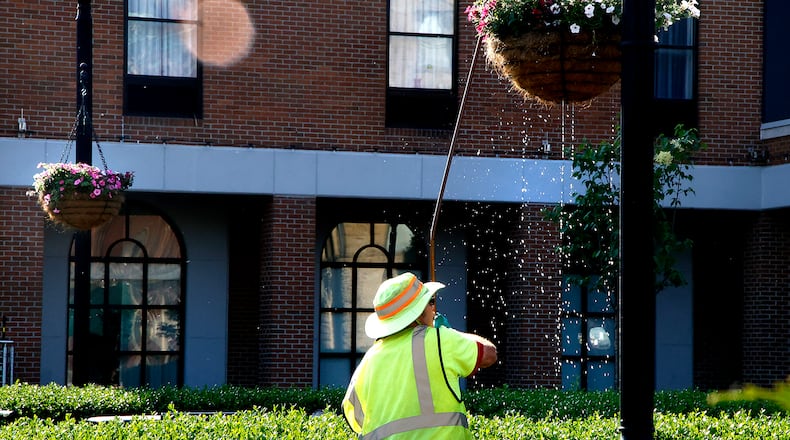Eviston told commissioners the recommended increases to water, sewer and stormwater rates would take place over the next two years.
“These increases are necessary to cover rising operational costs, maintain and upgrade infrastructure and ensure reliable delivery of services while balancing inflation and increasing environmental regulations,” she said.
Increases of 12%, 1% and 25 cents are recommended on Jan. 1, 2025 and Jan. 1, 2026 for water, sewer and stormwater respectively.
Eviston says the city has seen an increase in the cost to treat water totaling more than $1 million annually since 2021.
She offered examples of those increases, citing the cost of chemicals used to treat water and the cost of hardware.
“A four-foot fire hydrant has increased from $1,815 to $3,117. The city’s contract for lime has increased from $798,000 in 2021 to $1.6 million in 2024,” she said.
The city finance and public services departments worked together to project rates and prices out over the next 10 years to provide rate recommendations to city officials, Eviston said.
“To provide some background, the Finance Department works collaboratively with the Service Department to update utility rate models — estimating revenue and expenses over the next 10 years in order to recommend necessary rate increases needed over the next two years in order to sustain the quality and safety of the essential services that we deliver to our customers,” she said.
Despite the increase, said the city’s water utility costs overall will continue to remain below statewide averages, officials said.
If the ordinances are approved by city commissioners, additional information will be posted on the City’s website in September, according to Eviston.
“We will also communicate via customers’ utility bills,” she said,
Earlier this year, Clark County officials also implemented a 58% increase in charges for septage treatment services and a 3% increase for both drinking water and sanitary sewer treatment services countywide.
Residents of the Rockway district will not see the county’s utility increase, but they will see the city increase because they are connected to Springfield utilities. The city’s CEDA agreement with Springfield Twp. means residents of that township will also be impacted because the agreement requires the county to charge what the city does.
Information about county utilities can be found on the county’s utilities website.
About the Author
